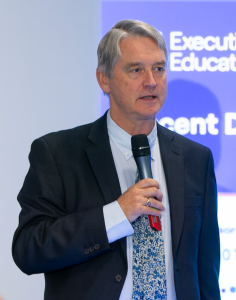
Professor of Economics at the Toulouse School of Economics
Research Project Title
Conflict and Trust in Religion
Research abstract
This book project is an economist’s attempt to understand the way in which religious movements (and individual churches, temples, mosques, synagogues and other organizations within movements) compete for members and resources. Drawing on several disciplines and ranging widely from prehistory through classical and medieval times to the present day, it presents a conceptual approach that understands religious organizations as platforms that create communities bringing together diverse groups of members. It analyzes both what such movements have in common with secular platforms and what is distinctively religious about them – particularly their deployment of ritual, their reliance (to different degrees) on doctrine and belief, and their mastery of narratives that explain their members’ place in the world and help them to make sense of suffering in their lives. It shows how different competitive strategies coexist in the overall religious ecosystem, and have enabled religious movements to innovate in response to the pressures of competition from secular society. As a result religion remains robustly capable of mobilizing its adherents in the 21st century, and also wields immense economic and political power. This power can be used sometimes to good and sometimes to bad effect. The presentation will summarize the book’s major arguments and open a discussion about how interdisciplinary collaborations can make progress in understanding religion in the world today.
-
Biografische Angaben
Paul Seabright is Professor of Economics at the Toulouse School of Economics, a Fellow of All Souls College, Oxford and former Director of the interdisciplinary Institute for Advanced Study in Toulouse. He is author among other works of The Company of Strangers: A Natural History of Economic Life (Princeton 2010). -
Publikationen
“God insures those who pay? Formal insurance and religious offerings in Ghana” (with Emmanuelle Auriol, Julie Lassébie, Amma Panin and Eva Raiber), Quarterly Journal of Economics 135(4), (2020), pp. 1799-1848, https://doi.org/10.1093/qje/qjaa015. “Trust in the Image of God: links between religiosity and reciprocity in Haiti” (with Emmanuelle Auriol, Diego Delissaint, Maleke Fourati and Josepa Miquel-Florensa), Economics of Transition and Institutional Change 29(1), (2021), pp.3-34. https://doi.org/10.1111/ecot.12263 “Favoring your in-group can harm both them and you: ethnicity and public goods provision in China” (with César Mantilla, Ling Zhou, Charlotte Wang, Donghui Yang and Suping Shen), Journal of Economic Behavior and Organization185 (2021), pp. 211-233, https://doi.org/10.1016/j.jebo.2021.02.016 “Betting on the Lord: Lotteries and Religiosity in Haiti” (with Emmanuelle Auriol, Diego Delissaint, Maleke Fourati and Josepa Miquel-Florensa), World Development, 144 (2021), https://doi.org/10.1016/j.worlddev.2021.105441

